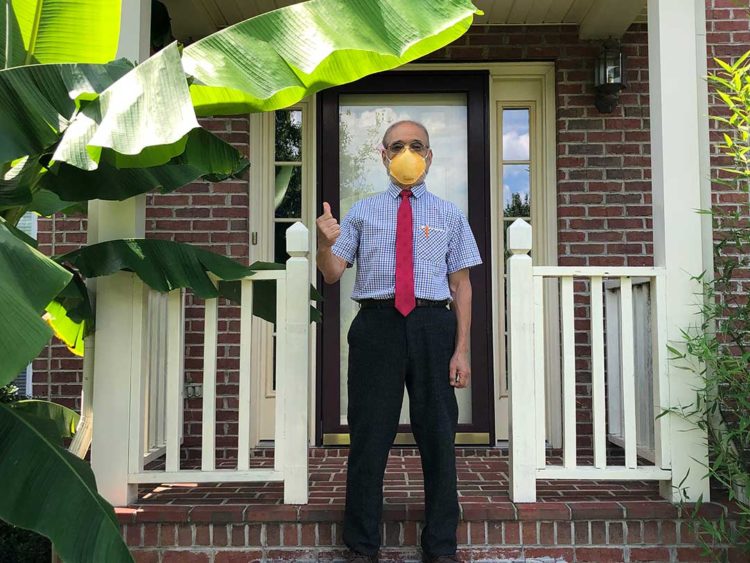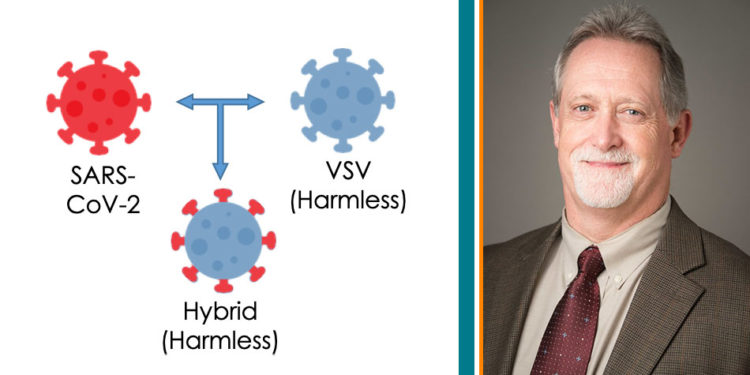
Millions of healthcare and essential workers have worn N95 respirators or other medical masks to protect themselves over the course of the COVID-19 pandemic. Current Centers for Disease Control and Prevention numbers indicate that over 148 million vaccines have been administered, the majority of which are Moderna or Pfizer doses.
After a year of uncertainty, the end of the COVID-19 pandemic may soon be in sight. Research efforts and technology from the University of Tennessee (UT) have played a significant role in making this a reality. From the N95 mask technology to developing systems to quickly and safely screen vaccines, as used by Moderna and Pfizer, UT technology licensed by the University of Tennessee Research Foundation (UTRF) is on the forefront of the COVID-19 fight.
Some of UT’s contributions were recently recognized by AUTM’s Better World Project, which named UTRF as the 2020 Legend Award honoree and spotlighted its work on Gene Pool Innovations for its role in moving academic research from the lab to the marketplace. AUTM awarded UTRF with the 2020 Legend Award for its role in facilitating the proliferation of the N95 mask, made from UT technology 30 years ago.

Dr. Peter Tsai is the architect behind the critical technology in N95 respirators and a retired professor from the Department of Materials Science and Engineering at UT Knoxville’s Tickle College of Engineering. He has a 25-year-long partnership with UTRF that includes 12 U.S. patents and more than 20 commercial license agreements. This year, UTRF connected Tsai and his research to a large number of facilities around the world. Tsai came out of retirement to share his expertise with many companies interested in producing his charged nonwoven fabric or in scaling up production.
Since coming out of retirement, Tsai has also become somewhat of a celebrity in the fight against COVID-19. He has been featured in publications around the world, such as the Washington Post and NPR. Ever humble, he told the Knoxville News Sentinel last year that his invention is just an “ordinary invention.
This is an opportunity for me to contribute to the community,” he explained to the Knoxville News Sentinel. “If I can do this, it will be a good memory for the rest of my life.”
AUTM’s Better World Project also spotlighted UTRF for Gene Pool Innovations thanks to the hard work of Dr. Michael Whitt, associate dean and chair of the Department of Medical Education at the College of Medicine and professor in the Department of Microbiology, Immunology and Biochemistry at the University Health Science Center (UTHSC) in Memphis. Years ago, Whitt developed and patented a reverse genetics system that uses vesicular stomatitis virus (VSV) to allow researchers to study highly dangerous viruses in safer conditions.

When the pandemic hit, Whitt adapted his unique pseudotyping technology to help with vaccine development efforts. Whitt’s technology allows Moderna and Pfizer to test if their vaccines are creating neutralizing antibodies without having to handle the dangerous SARS-CoV-2. Once the new United Kingdom and South African variants began spreading around the world, Whitt’s team also helped the pharmaceutical companies test if their vaccines still created these antibodies.
UTRF facilitated access to Whitt’s technology by entering into agreements with multiple companies for transfer of the VSV pseudotypes through licensing and material transfer agreements and building distribution partnerships to provide the VSV platform globally. More than 170 companies and universities in over 30 different countries have used these materials during the pandemic.
In addition to Dr. Tsai and Dr. Whitt’s work, the entire UT System has worked diligently to keep its students, faculty and staff safe and further research that benefits the community and world at large. Since the pandemic began, many people have stepped up to use their skills and expertise to save countless lives. These efforts range from opening testing and vaccine clinics across the state to creating a community saliva testing program to identify campus outbreaks before they start.
At UT Knoxville, students and faculty collaborated with local organizations and laboratories to design, make and distribute personal protective equipment, including face shields for healthcare workers. They also collaborated with Oak Ridge National Laboratory to develop an at-home test.
Other work includes UTHSC’s Dr. Colleen Jonsson, professor and Van Vleet Chair of Excellence in Virology, director of the Regional Biocontainment Laboratory, and director of the Institute for the Study of Host-Pathogen Systems, who has brought in numerous COVID-19 contracts due to her lab’s capacity to work with the live virus. Her work has contributed to a better understanding of this dangerous pathogen.
The UT System has been deep in the fight against COVID-19 since the very beginning,” said UTRF President Dr. Stacey Patterson. “AUTM’s recognition of Dr. Peter Tsai and Dr. Michael Whitt emphasizes the high-caliber research and technology coming out of the UT System. I’m proud to be at UTRF and UT alongside the many faculty members, staff and students who are making vital contributions toward slowing and ending this pandemic.”